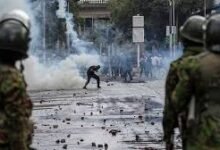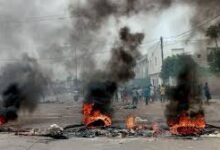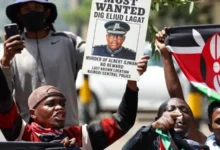Chaos as Nigerian city removes okadas

There has been widespread disruption in Nigeria’s commercial capital, Lagos on the first working day of a ban on motorbike- and tricycle-taxis.
There were long queues at bus stations even though extra transport was laid on, while some walked for miles.
Commercial motorbikes are the most common form of public transport in the city of at least 20 million people, which is notorious for traffic jams.
The authorities said the ban was needed because of safety concerns.
They said the motorbike taxis, known as okadas, and tricycles, called kekes, caused “death and disorderliness”.
It has been aided by security agencies who have been accused of going beyond their remit.
The ban did not include private motorbikes and motorcycles used by delivery companies but on Saturday, the first day of the ban, there were complaints that the police were arresting them.
A few commercial dissenters were arrested over the weekend, but there was near total compliance with the ban on Monday, the first working day since it took effect.
The decision has not gone down well with commuters, who feel the decision is elitist and targeted at the poor.
As many sweaty commuters waited at the bus stations for unavailable taxis and buses on Monday, they wondered why the government did not provide alternatives before placing the ban.
The government said it had provided more public buses and boats for those along the waterways, but the truth is that the kekes and okadas provided a badly needed service.
They plied the streets and hard-to-reach areas where buses and taxis are unable to go.
In this city where appearance means a lot to many people, the okadas saved them from the dust and the sweat of walking, by dropping them off at their doorsteps.
-BBC






